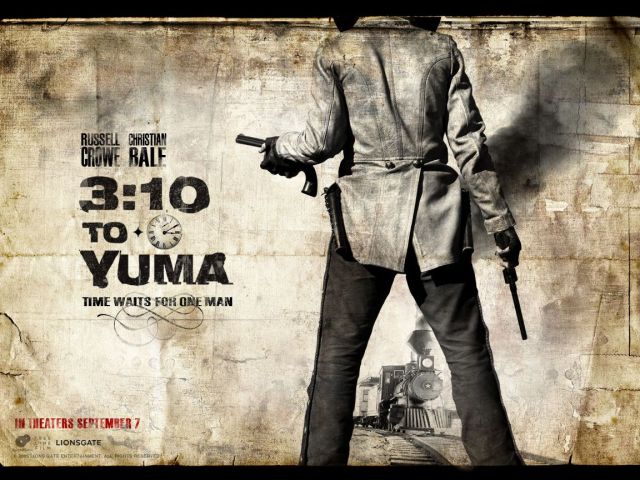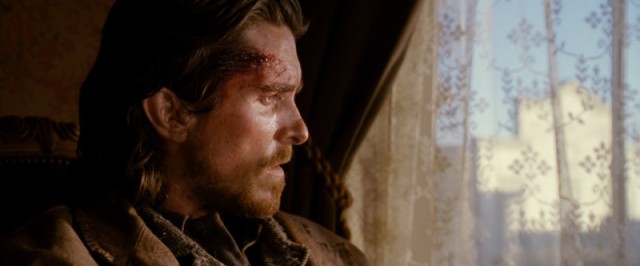
Have you ever heard a politician accuse someone of being, “on the wrong side of history”? It’s a figure of speech, a cliché, that is meant to label an opponent as backward or ignorant in the face of inevitable social change. In other words, the passage of time will vindicate the views of the one and prove that the other was an enemy of progress. Since we recently marked the day in which Jesus of Nazareth died on a cross, and since today is the day we celebrate his resurrection, I thought it would be appropriate to ask the question, “Was Jesus on the wrong side of history?” After all, we’ve had 2,000 years to consider the question.
At the time of his crucifixion, Jesus lost the support of everyone. Jewish religious leaders believed he was a blasphemer for comparing himself to God and threatening their power, so they tried to kill him. The Roman authorities desired to keep their subjects in check, so killing this instigator of the people and enemy of the Jewish authorities made sense. Even Jesus’ closest followers scattered in those dark hours. The one who was meant to be Christ’s rock-solid representative, Peter, verbally declared that he had never known Jesus on three occasions. But far more damning than the loss of his people, had to have been the loss of God, his father.
The night before his crucifixion, Jesus asked God, “My Father, if it is possible, may this cup be taken from me. Yet not as I will, but as you will.” (Matthew 26:39) The cup he’s referring to is his horrific death. It’s a death that Jesus saw coming because the prophets of old foretold it. Isaiah, who lived 600 years before Christ came, wrote, “Surely he took up our pain and bore our suffering, yet we considered him punished by God,stricken by him, and afflicted. But he was pierced for our transgressions,he was crushed for our iniquities…he was led like a lamb to the slaughter.” (Isaiah 53:4-5,7) King David wrote 1,000 years before Jesus was born, “My God, my God, why have you forsaken me?…All who see me mock me;they hurl insults, shaking their heads.“He trusts in the Lord,” they say,“let the Lord rescue him.“…a pack of villains encircles me; they pierce my hands and my feet” (Psalm 22: 1,7,8,16) Jesus understood that these prophecies referred to him. God declared the nature of his son’s death centuries before he ever walked the earth.
According to the Bible, Jesus was on the right side of history even when everyone forsook him as he experienced an excruciating death. In the hour of his death it must have seemed to the world that Jesus had made some tragic mistake, or perhaps he had done something terrible to deserve the judgement of God (like if he had been claiming to be God’s son if it weren’t true). But looking back, and looking through the pages of the Bible, it’s clear that this was all part of God’s plan to save his people. Isaiah the prophet even declares that it was God’s will to crush him. It was God’s will to sacrifice his beloved son to save us out of love. (Why this is so is for another blog post)
His resurrection three days later, his ascension into Heaven, and the subsequent spread of his church all strongly favor the idea that Jesus was on the right side of progress and an unmatched force for social change. But this all hinges on the truth of his resurrection. Anyone can die, but who can rise again?
And if Christ has not been raised, our preaching is useless and so is your faith. More than that, we are then found to be false witnesses about God, for we have testified about God that he raised Christ from the dead. But he did not raise him if in fact the dead are not raised. For if the dead are not raised, then Christ has not been raised either. And if Christ has not been raised, your faith is futile; you are still in your sins. Then those also who have fallen asleep in Christ are lost. If only for this life we have hope in Christ, we are of all people most to be pitied. 1 Corinthians 15: 14-19
Paul is saying, essentially, that if Jesus is still dead, he was a pitiful fool, and so are we. Christ would be on the wrong side of history and so would all of his followers.
In the final analysis, the answer to the question of whether Jesus falls on the right or wrong side of history rests entirely on the reality of his resurrection. If he did in fact rise from the dead, we can trust all of his claims about being the son of God and the exclusive savior of mankind. But if he died on the cross and stayed dead, we must dismiss him entirely and judge him as an enemy of progress. The basis of his whole teaching is that he can save people from their sins. If he can’t even save himself, how can he save anyone else? If the crucifixion killed God incarnate, God incarnate rose from the dead in three days. If the crucifixion killed a delusional yet well-intentioned man, a delusional yet well-intentioned man is dust and ashes. It’s one or the other. History knows no neutrality.
Jesus once asked two blind men, “Do you believe that I am able do this?” He asked them if they believed he had the authority and power to restore life to their eyes: if he had power over death and decay.
Today, on Easter Sunday, I join them in saying, “Yes, Lord!”















